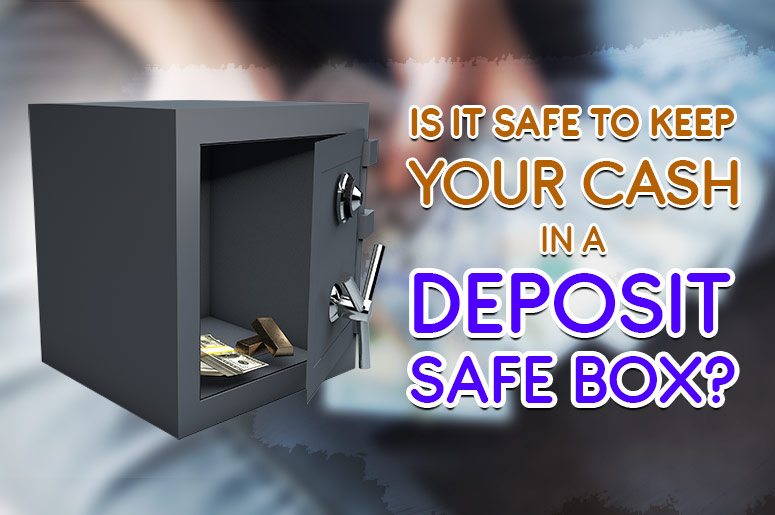
Is It Safe to Keep Your Cash in a Deposit Safe Box?
Finding a secure means of storing important documents and valuable items is a challenge many people face. While personal home safes are an increasingly popular choice for many households today, there are still instances when a deposit safe box should be used to safeguard your possessions.
When it comes to safety deposit boxes, however, many people wonder if they’re an ideal storage option for cash.
Here, we discuss in detail how a safe deposit box works and whether they’re a good place to store away your hard-earned money.
What is a deposit safe box?
Deposit safe boxes, or more popularly known as safety deposit boxes or safe deposit boxes, are a secure storage option typically found in banks and some post offices.
In banks, safe boxes can be found within a vault or inside a larger safe. The boxes themselves can vary in size and are used by bank customers for the safe storage of valuable and important items such as property titles, wills, insurance documents, heirlooms, and more.
Storing cash in safe deposit boxes
Deposit boxes can be a good alternative for some people who wish to have cash available in a safe place without necessarily depositing them in a bank account.
Compared to other common locations of storing cash such as buried in the backyard or under a mattress, a safety deposit box offers the most security.
Bank limitations
Banks that offer safe deposit boxes have the right to limit the type of items that can be stored. For instance, you may not be allowed to store firearms or perishable items.
Moreover, your access to the boxes may also be limited to specific times of the day and specific days of the week.
In some cases, however, banks won't ask what you'll be storing in the safe deposit box. This means that storing cash and other valuable items is more than fine.
Are items inside safe deposit boxes protected?
In terms of security, the items that you deposit in a safe box are as well protected as the other assets in the bank. Unlike regular account deposits, however, they are usually not covered by insurance corporations.
This means that if the bank goes bankrupt, burns down, and your cash and other items are destroyed, you won't be reimbursed for your loss by the key insurance regulators. You can, however, take out insurance for the valuable items as a separate service to safeguard them against natural disasters.
Other concerns
Banks will charge customers who wish to rent a safe deposit box. Additionally, there are no laws that limit how much money you can store inside them. If you're considering storing a large sum of money, it may be best to get legal advice about using deposit boxes for your storage purposes to determine if they're your best option.
When you rent a box, only you or a co-signer has the right to place or remove items from it. Also, have in mind that you won't be able to access the cash in the safe deposit box for emergencies during bank holidays or when the bank is closed.
Key Takeaway
It is often a good idea to have some cash available for emergencies, but keeping them under the mattress, inside a drawer, or within the pages of a book may not be your best storage option.
You can either deposit them in a bank account, store them inside a deposit safe box, or better yet, buy your own home safe that can be used for the storage of your other important items and valuable possessions.
